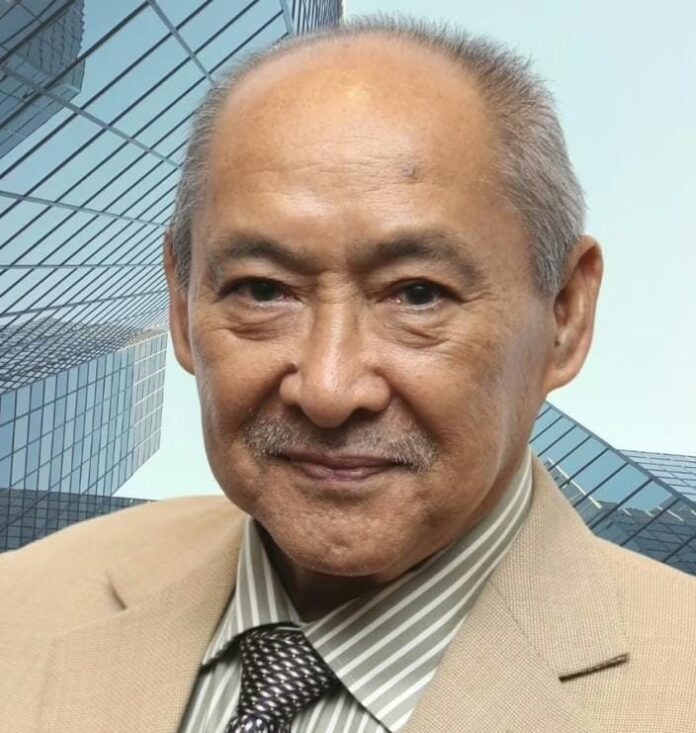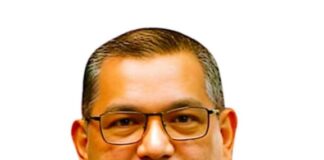By Datuk Ts Dr. Hj Ramli Amir, former President of the Chartered Institute of Logistics and Transport (CILT) Malaysia and Vice-President of CILT International for Southeast Asia
KOTA KINABALU: In an age where seeing was believing, we trusted our eyes and ears to guide our judgments.
Today, that fundamental truth is under assault. A new, insidious technology threatens to warp the very fabric of our democratic processes, replacing informed debate with manufactured reality.
As communities in Sabah prepare to exercise their democratic rights, the emergence of AI-generated deepfakes represents the most urgent and destabilizing threat to electoral integrity since the dawn of the digital era.
The experience of Slovakia is a chilling harbinger of what could unfold, a stark lesson in how a lie, delivered convincingly enough, can aim to steal an election.
The warning shot was fired in September 2023, just days before Slovakia’s parliamentary elections. An audio clip, seemingly authentic and disturbingly precise, began to circulate on social media. It featured the voice of Michal Šimečka, the pro-Western liberal candidate leading in the polls, apparently discussing a plot to rig the election by buying votes from the Roma minority.
The clip was designed to ignite outrage and distrust. Despite swift denials and fact-checkers confirming it was an AI-generated fake, the damage was seismic. Amplified through opaque channels and encrypted apps, the lie spread faster than the truth could catch up. While not the sole factor, the deepfake is widely credited with poisoning the electoral atmosphere, contributing to a narrow victory for its opponent and altering the nation’s trajectory.
This incident provides a perfect blueprint for how deepfakes can be weaponized, and the lessons are terrifyingly applicable to Sabah’s unique political landscape.
The threat is not that a deepfake will convince everyone, but that it needs only to seed enough confusion in a tightly contested race.
Imagine, in the final, feverish hours of the campaign, a video surfaces on WhatsApp. It appears to show a popular candidate from one of Sabah’s diverse communities making a derogatory remark about another. Or consider an audio clip, leaked to a partisan blog, that perfectly mimics a party leader’s voice confessing to a secret deal that would undermine state interests.
The content would be crafted to exploit existing societal fissures—communal sensitivities, regional grievances, or economic anxieties.
The consequences would be immediate and devastating. Such a fabrication, released during the pre-election blackout period when traditional media is restrained, would spread like wildfire through closed networks, bypassing journalistic scrutiny.
Even when debunked, the lie leaves a permanent stain. Supporters of the targeted candidate may become demoralized and less likely to vote, while opponents, their biases confirmed, will cling to the narrative.
This creates a “liar’s dividend,” where the very existence of deepfakes allows politicians to dismiss any legitimate recording of their misdeeds as a potential fake, eroding accountability altogether.
The ultimate target of this digital poison is not a single candidate, but the very foundation of your power as a citizen: your right to make an informed choice based on truth. When a deepfake is unleashed, it does not just attack a politician; it attacks the integrity of Sabah’s entire democratic process.
It aims to replace your judgment with manufactured outrage, your reasoning with algorithmic deception. The resulting cynicism—the feeling that “all politicians are liars” and “no one can be trusted”—is the toxin’s desired effect. If voters lose faith that an election is fair and authentic, the very legitimacy of the future government is undermined before it even takes office, sowing seeds of discord and instability that can last long after the polls have closed. This is not merely about who wins; it is about whether the people of Sabah can trust their own victory.
Therefore, vigilance is not just a recommendation; it is a civic duty for every Sabahan. The unique, close-knit fabric of Sabah’s diverse communities—where word-of-mouth and trusted networks are powerful—can be both a vulnerability and a tremendous strength.
Malicious actors will seek to exploit the bonds of your kampung spirit and communal groups to spread lies. But this same strength can be your best defense.
You must become the guardians of your own digital landscape. This means adopting a new level of critical thinking: treat any shocking audio or video that arrives on your phone, especially in the tense final days of the campaign, not as proof, but as an allegation. Ask yourself: Who sent this?
What is their motive? Can I find this on reputable news sites or official candidate channels? A simple pause before you share could be the most powerful vote you cast in this election.
Protecting Sabah’s election is a collective mission. It requires a pledge from every community leader, every family group chat admin, and every individual voter to prioritize truth over tribal loyalty and fact over speed. The lesson from Slovakia is our warning; what happened there can happen here. But Sabah has the power to write a different ending.
By choosing to look closer, question deeper, and value your community’s integrity over viral sensation, you do more than just elect a leader. You defend the very principle that in a democracy, the people’s will be based on reality, not a malicious illusion.
The future of Sabah’s autonomy and prosperity depends on the choices you make at the ballot box—and just as importantly, on the choices you make with your share button. Stand guard, for the truth is worth protecting.


